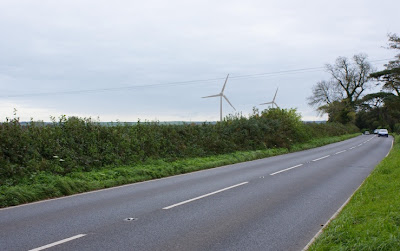I was having a discussion with one of the lucky winners - Dan Findlay - about our flagship project -Totnes Community Wind Farm (TCWF). One of the key aspects that seems to surround onshore wind projects, is the divisions it can create in the community - as well as the Government. This reminded me of an article I had read the previous week on the issue, which struck a chord:
"Pros and antis: it is disconcerting how decent they all seem....... Vexingly, the two sides of this debate do not organise neatly along opposite straits: it's not as though the antis are fighting for the landscape, while the pros are fighting for the economy. Everyone's a conservationist; everyone's trying to secure a long-term energy future......"
Clearly it's a highly emotive issue, that touches the core of what we value, and often, becomes part of our identity. So when disagreements occur they are undeniably personal. People are genuinely worried and concerned about their standard of life. But, there needs to be some sense of proportion. Our sense of community and neighbourliness is of more value than any one issue.
We all want a viable future for our fragile environment and society. When we look objectively at the problem of securing our low carbon energy future locally, we simply cannot afford to ignore our cheapest and most widely available resource - onshore wind.
We need to acknowledge the many similarities between the opposing sides, and also the difficulties people are experiencing, in order to have better conversations. I think this quote from the same article sums up some of my sentiments:
"We are still the Saudi Arabia of wind, but you have to imagine us as an oil-rich country with a very strong objection to the extraction of oil, for reasons that are absolutely self-evident to half our parliament (and our communities) and totally obscure to the other half."
